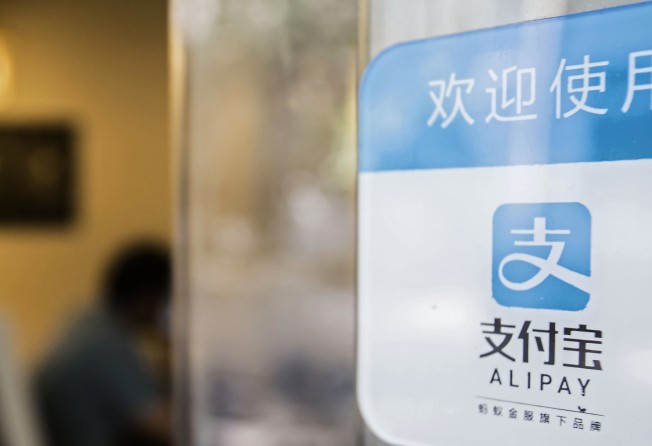China’s giant Yu’e Bao money market fund riskier than US rival, Fitch says
The fund has most of its assets in time deposits at Chinese banks, whereas its US counterpart, run by JPMorgan, invests in US government debt

Chinese money market fund Yu’e Bao, the world’s largest with assets of some 1.56 trillion yuan (US$233 billion), has a weaker credit quality and liquidity than its closest competitor run by US bank JPMorgan, according to a report by ratings agency Fitch.
Yu’e Bao, which is managed by Tianhong Asset Management and distributed by Alibaba Group Holding’s online payments affiliate Ant Financial, attracted much fanfare during its early years when it offered investors annualised returns of over 6 per cent, and has grown to represent a quarter of the entire money market fund sector in China.
The fund was set up in part to manage the money transacted through Alibaba’s e-commerce platforms, and its size dwarfs JPMorgan’s US government fund, which has about US$140 billion of assets under management.
But Fitch noted that 87 per cent of Yu’e Bao’s underlying assets were negotiable time deposits with domestic Chinese banks, whereas the JPMorgan fund invested only in AAA-rated US Treasuries and government securities, or in repos backed by those bonds.
“The liquidity of Yu’e Bao is weaker than its US counterpart, because these banking deposit instruments are bilateral contracts and hence do not have a secondary market,” said Fitch analyst Huang Li.
“Also, Yu’e Bao’s assets are longer dated, as the weighted average maturity of its assets is 60 days, compared with just 17 days for the JPMorgan money market fund,” she said.
Under Fitch’s methodology, Chinese domestic banks’ ratings are capped by China’s sovereign rating of A+, meaning that Yu’e Bao’s underlying assets are potentially four notches worse on the credit scale than US Treasuries. Fitch does not rate Yu’e Bao itself.
However, Fitch also noted that Yu’e Bao‘s investor base is large and diversified, with 325 million investors, making large-scale redemptions an unlikely event. In contrast, the JPMorgan fund is predominately held by institutional investors, meaning its investor base is more concentrated.
Money market funds have become the largest type of mutual funds in China with over half the market, compared to the only 14 per cent share that money market funds have in the US.
As Yu’e Bao has kept growing in recent years, industry observers and analysts have said that it has assumed systemic importance, so that any large redemptions under extreme market conditions could create stress in other parts of Chinese financial markets and could transfer volatility to the formal banking sector.
But Huang said recent new money market fund regulations introduced by China’s securities regulator, which became effective in October, would be positive for the industry’s development.
The new rules would result in a significant tightening of the regulatory risk limits that managers must observe, and were likely to improve liquidity among money market funds and to slow their rate of expansion, she said, adding that funds of systemic importance could be treated differently by the regulator.